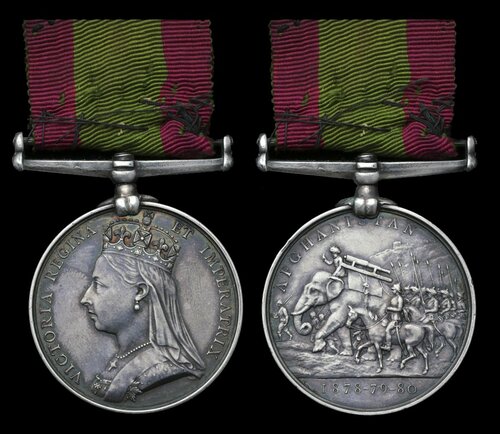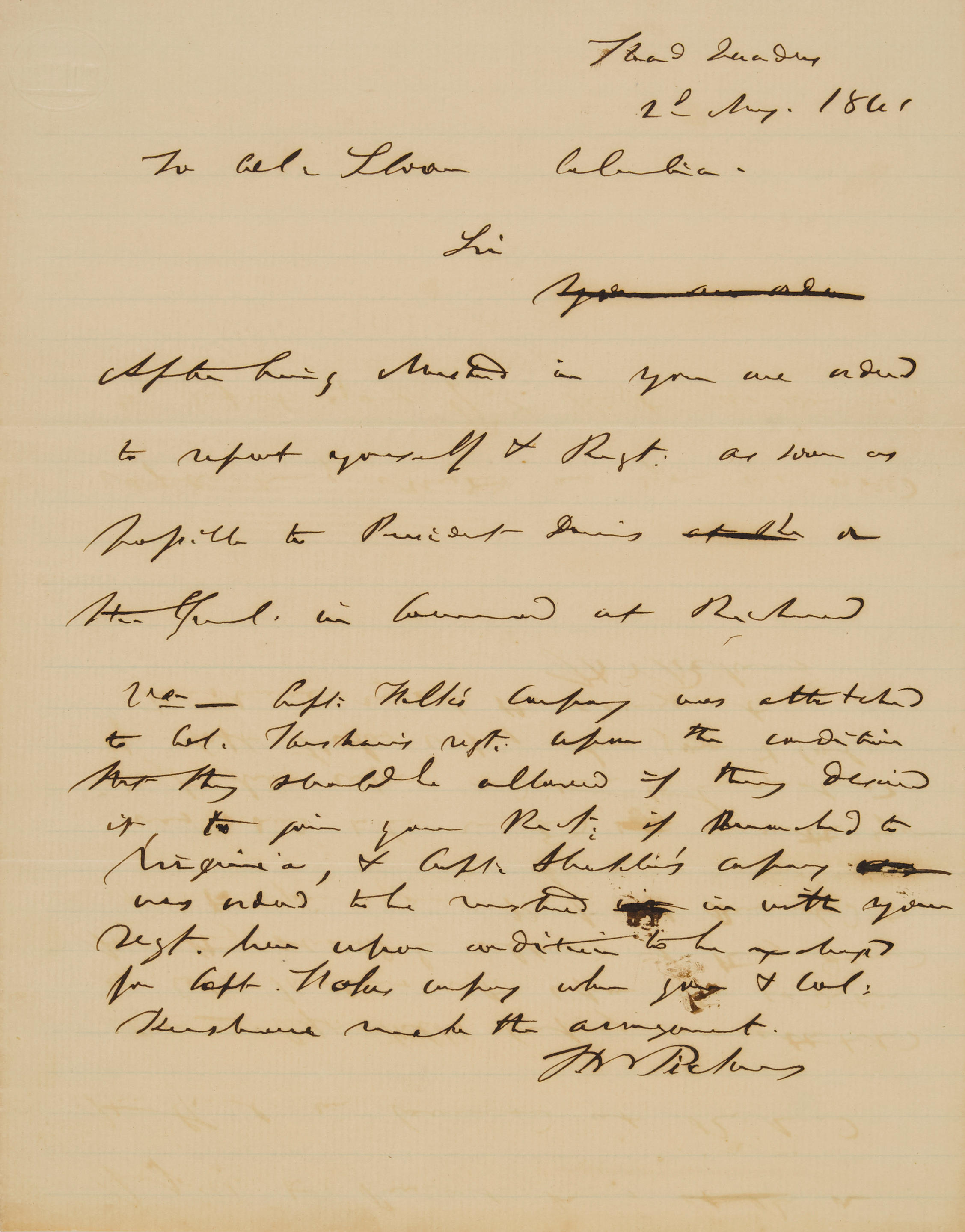'Colonel John Leader, was above all things a modest man, for when asked about his life, he is quoted as responding: "My hideous past? Why, nothing exciting ever happened to me!" Clearly, he liked passing the fact that he had seen service with all the Allies but one, and had been an interpreter of Japanese, Chinese and German. Equally, in his book 'Oregon Through Alien Eyes', John Leader continued to state with self-deprecating humour: "When I returned, crumpled from the Boer War, I could make spirited efforts at posing as a young hero, but that era was past, and the only amusement I could get from my trailing hind leg, lay in the memory of a popular vaudeville song of my youth, describing a gentleman, who had inadvertently married a young lady with a wooden leg, and used to sing to her: "You're not a bit of use to me, You're half a woman and half a tree."' See: https://blogs.uoregon.edu/scua/2014/12/16/colonel-john-leader-the-man-who-prepared-oregon-for-world-war-i/ An interesting Boer War and Great War campaign group of four awarded to Colonel J. Leader, Royal Irish Rifles, late Bedfordshire Regiment, a talented linguist who saw his fair share of action, not least as C.O. of the 16th Battalion, Royal Irish Rifles (Pioneers): he took the unit to France in October 1914 and remained in command until buried by shell fire on the Somme in 1916 Queen's South Africa 1899-1902, 2 clasps, Cape Colony, Orange Free State (Lieut. J. Leader, Bedford Regt.); 1914-15 Star (Lt. Col. J. Leader, R. Ir. Rif.); British War and Victory Medals (Lt. Col. J. Leader.), rank and initial re-inscribed on the first, generally good very fine (4) John Leader was born to Irish parents in Quetta in 1877 and was destined to follow a long line of military men, his father, Surgeon-Major John Leader of the 19th Regiment, among them. The previous fourteen generations of 'Leaders' derived from an old moated hall at Keale in Cork; the family name had been 'Temple' until the Battle of the Boyne, whereupon Prince William of Orange renamed John Temple of Keale, 'Leader'. Young John was educated at Wellington College, where he excelled at sport and captained the hockey, polo, soccer and lawn tennis teams. Having then attended Sandhurst, he was commissioned in the Bedfordshire Regiment. A linguist of some standing, his first military assignment was to Germany in 1896, where he served as an interpreter. He subsequently witnessed active service in the Boer War, serving as a Lieutenant in the Mounted Infantry in operations in Cape Colony and Orange Free State (Queen's Medal & 2 clasps). From South Africa he was posted to China, where he acquired the position of interpreter and, on the outbreak of the Russo-Japanese War, he was once more detached from regimental employ to teach Mounted Infantry tactics. He was destined to return to the Far East once more, as an interpreter of Japanese, whilst in 1908 he is stated to have 'fought in Arabia, distinguishing himself in the field.' Leader retired from military service in 1909 and relocated to Vancouver, British Columbia, with his new English wife, Evelyn Pleydell-Bouverie, daughter of the former commander of the 17th Royal Lancers, and niece of the Earl of Radnor. It was here that they started a family and began an import-export business, but with the outbreak of war, Leader immediately returned to England. The Great War Initially appointed a Captain of Staff at Headquarters, he was soon promoted to Lieutenant-Colonel, taking command in October 1914 of the 16th Royal Irish Rifles within General French's Ulster Division. In 1916 he was severely wounded when his position at Aveluy Wood was hit by thirteen German shells, causing the dugout in which he was sheltering to collapse; Leader was crushed under the walls and was evacuated to England. For full details of his battalion's trials and tribulations in the period 1914-16, see the recipient's memoirs; The Terrors , by Lieutenant-Colonel S. N. White, and: http://www.wartimememoriesp
'Colonel John Leader, was above all things a modest man, for when asked about his life, he is quoted as responding: "My hideous past? Why, nothing exciting ever happened to me!" Clearly, he liked passing the fact that he had seen service with all the Allies but one, and had been an interpreter of Japanese, Chinese and German. Equally, in his book 'Oregon Through Alien Eyes', John Leader continued to state with self-deprecating humour: "When I returned, crumpled from the Boer War, I could make spirited efforts at posing as a young hero, but that era was past, and the only amusement I could get from my trailing hind leg, lay in the memory of a popular vaudeville song of my youth, describing a gentleman, who had inadvertently married a young lady with a wooden leg, and used to sing to her: "You're not a bit of use to me, You're half a woman and half a tree."' See: https://blogs.uoregon.edu/scua/2014/12/16/colonel-john-leader-the-man-who-prepared-oregon-for-world-war-i/ An interesting Boer War and Great War campaign group of four awarded to Colonel J. Leader, Royal Irish Rifles, late Bedfordshire Regiment, a talented linguist who saw his fair share of action, not least as C.O. of the 16th Battalion, Royal Irish Rifles (Pioneers): he took the unit to France in October 1914 and remained in command until buried by shell fire on the Somme in 1916 Queen's South Africa 1899-1902, 2 clasps, Cape Colony, Orange Free State (Lieut. J. Leader, Bedford Regt.); 1914-15 Star (Lt. Col. J. Leader, R. Ir. Rif.); British War and Victory Medals (Lt. Col. J. Leader.), rank and initial re-inscribed on the first, generally good very fine (4) John Leader was born to Irish parents in Quetta in 1877 and was destined to follow a long line of military men, his father, Surgeon-Major John Leader of the 19th Regiment, among them. The previous fourteen generations of 'Leaders' derived from an old moated hall at Keale in Cork; the family name had been 'Temple' until the Battle of the Boyne, whereupon Prince William of Orange renamed John Temple of Keale, 'Leader'. Young John was educated at Wellington College, where he excelled at sport and captained the hockey, polo, soccer and lawn tennis teams. Having then attended Sandhurst, he was commissioned in the Bedfordshire Regiment. A linguist of some standing, his first military assignment was to Germany in 1896, where he served as an interpreter. He subsequently witnessed active service in the Boer War, serving as a Lieutenant in the Mounted Infantry in operations in Cape Colony and Orange Free State (Queen's Medal & 2 clasps). From South Africa he was posted to China, where he acquired the position of interpreter and, on the outbreak of the Russo-Japanese War, he was once more detached from regimental employ to teach Mounted Infantry tactics. He was destined to return to the Far East once more, as an interpreter of Japanese, whilst in 1908 he is stated to have 'fought in Arabia, distinguishing himself in the field.' Leader retired from military service in 1909 and relocated to Vancouver, British Columbia, with his new English wife, Evelyn Pleydell-Bouverie, daughter of the former commander of the 17th Royal Lancers, and niece of the Earl of Radnor. It was here that they started a family and began an import-export business, but with the outbreak of war, Leader immediately returned to England. The Great War Initially appointed a Captain of Staff at Headquarters, he was soon promoted to Lieutenant-Colonel, taking command in October 1914 of the 16th Royal Irish Rifles within General French's Ulster Division. In 1916 he was severely wounded when his position at Aveluy Wood was hit by thirteen German shells, causing the dugout in which he was sheltering to collapse; Leader was crushed under the walls and was evacuated to England. For full details of his battalion's trials and tribulations in the period 1914-16, see the recipient's memoirs; The Terrors , by Lieutenant-Colonel S. N. White, and: http://www.wartimememoriesp





/111635/Internet%20Image%201.jpg)



/40988/Internet%20Image%201.jpg)





Testen Sie LotSearch und seine Premium-Features 7 Tage - ohne Kosten!
Lassen Sie sich automatisch über neue Objekte in kommenden Auktionen benachrichtigen.
Suchauftrag anlegen